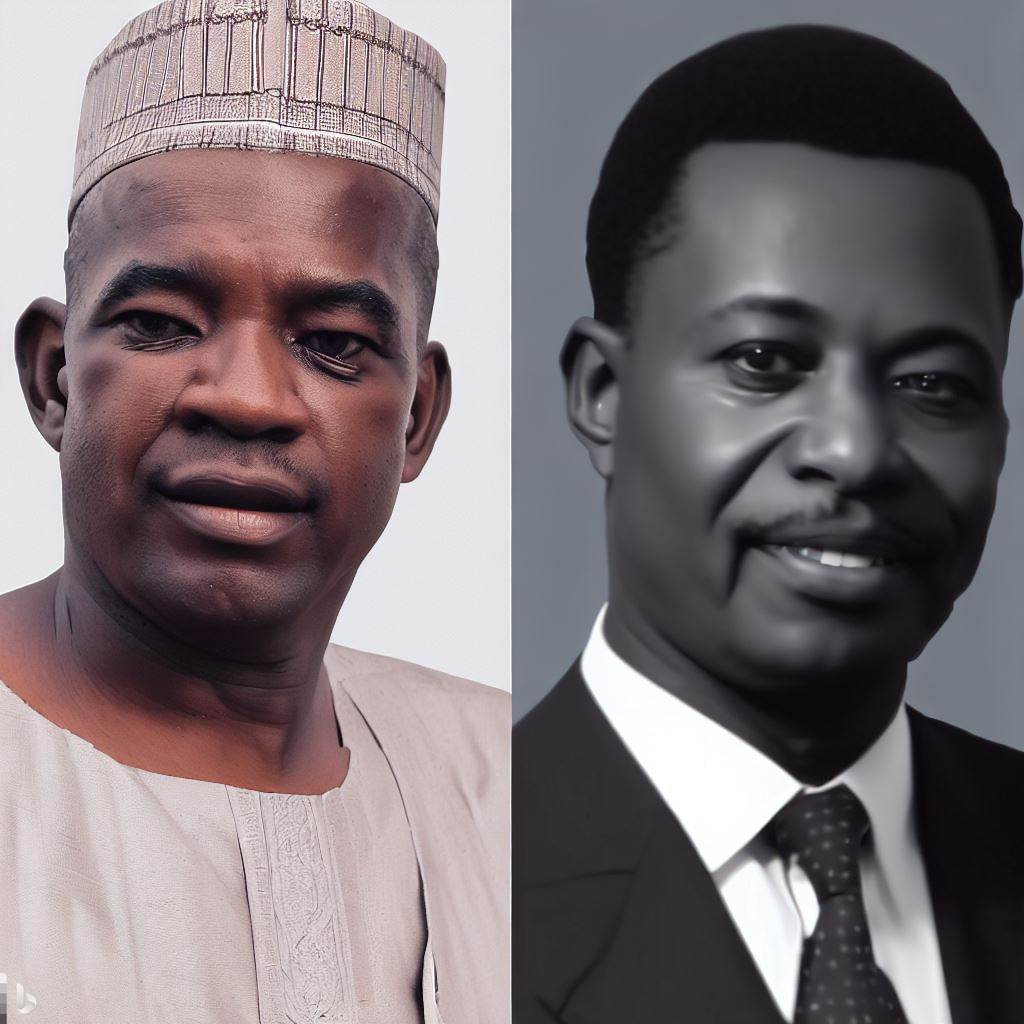Introduction
In understanding political systems, political scientists play a crucial role by analyzing and researching political phenomena.
This blog section focuses on leading political scientists from Nigeria, highlighting their contributions to the field.
Understanding political systems is crucial for informed governance. Political scientists play a pivotal role in this field, analyzing and interpreting the complex dynamics of politics.
Importance of Political Scientists
- Expertise: Political scientists possess in-depth knowledge of political theory, policy analysis, and comparative politics.
- Policy Guidance: They provide valuable insights to policymakers, aiding in effective decision-making.
- Social Impact: Their research shapes public discourse and influences societal progress.
Nigeria, a dynamic nation with a rich political landscape, boasts several prominent political scientists who have made significant contributions:
- Prof. Attahiru Jega: Renowned for his role as the Chairman of Nigeria’s Independent National Electoral Commission (INEC) during the pivotal 2015 elections.
- Dr. Ngozi Okonjo-Iweala: A former finance minister and World Bank executive, her work bridges economics and politics.
- Prof. Pat Utomi: An advocate for good governance and economic development, he has shaped Nigerian policy discussions.
- Dr. Hakeem Baba-Ahmed: A prolific author and political commentator, his writings shed light on Nigeria’s political landscape.
- Prof. Ayo Olukotun: A leading academic and political analyst, he explores topics such as democratization and governance.
These political scientists exemplify the significance of their field in shaping Nigeria’s political trajectory. By studying their work, we gain valuable insights into the nation’s past, present, and future.
Background on Nigeria’s political landscape
Nigeria, located in West Africa, is the most populous country on the continent. It gained independence from British colonial rule on October 1, 1960.
Since then, Nigeria has experienced a tumultuous political journey, marred by corruption, ethnic tensions, and military coups.
Overview of Nigeria’s political system
Nigeria operates a federal system of government with three tiers: the federal government, state governments, and local governments. The country follows a presidential system, with a president serving as the head of state and head of government.
The president is elected for a maximum of two four-year terms through a popular vote, alongside members of the National Assembly.
The National Assembly consists of two houses: the Senate and the House of Representatives. The judiciary, independent of the executive and legislative branches, ensures the rule of law.
Discussion of the significance of political science in Nigeria
Political science is of vital importance in Nigeria due to the country’s complex political landscape.
It helps analyze political systems, institutions, behavior, and policies, providing insights into governance and decision-making processes.
Political scientists in Nigeria contribute to the understanding of democracy, public administration, and political development.
They explore the dynamics of power, ethnic and religious diversity, and the challenges facing Nigeria’s political stability.
Generally, political science plays a significant role in policymaking, as it provides evidence-based research and analysis.
By examining political behavior and public opinion, political scientists guide policymakers in designing effective policies to address societal issues such as corruption, poverty, and inequality.
Prominent Nigerian political scientists
- Professor Oye Ibidapo-Obe: A distinguished professor of political science and former Vice-Chancellor of the University of Lagos.
He has contributed significantly to the field of political science, particularly in the areas of democratization, governance, and political economy. - Professor Ayo Olukotun: Known for his expertise in political theory and comparative politics, Professor Olukotun has written extensively about Nigerian politics, democratization, and political parties.
He is a thought leader in analyzing the role of the political elite and civil society. - Professor Jibrin Ibrahim: A renowned scholar in Nigeria’s political science community, Professor Ibrahim focuses on human rights, governance, and democratization in Africa.
He actively engages in advocating for democratic reforms and has been involved in various civil society organizations. - Professor Attahiru Jega: Former Chairman of the Independent National Electoral Commission (INEC), Professor Jega played a pivotal role in conducting credible elections in Nigeria.
His expertise in electoral management and political party reforms has been invaluable to Nigeria’s democratic process.
Nigeria’s political landscape is complex and challenging. Political science plays a crucial role in understanding and addressing the country’s political issues.
Prominent political scientists in Nigeria have made significant contributions to the field, aiding in the development of democratic institutions and effective governance.
Their expertise and research continue to shape Nigeria’s political landscape, striving for a stable and prosperous nation.
Read: Nigeria’s Political Climate: Views from the Scientists
Profile 1: Prof. Akinwumi Adesina
Prof. Akinwumi Adesina, a prominent political scientist from Nigeria, has made remarkable contributions to the field. With his expertise and dedication, he has left an indelible impact on Nigeria’s political landscape.
Introduction and background information on Prof. Adesina
Born and raised in Ibadan, Nigeria, Prof. Akinwumi Adesina is a renowned political scientist. He completed his education with a Ph.D. in Political Science from a prestigious university.
Prof. Adesina’s passion for political science emerged at a young age, as he witnessed the tumultuous political climate in Nigeria.
This fueled his determination to pursue a career focused on understanding and shaping the political landscape.
Highlighting key achievements and contributions in political science
Prof. Adesina’s contributions to political science are commendable. His research and publications on democratic governance and political economy have garnered international recognition.
One of his most notable achievements is his groundbreaking book, “Political Transformation in Nigeria: Lessons for Africa.” This seminal work has provided valuable insights into political transformation processes in Nigeria and beyond.
Prof. Adesina has also played a crucial role in mentoring young political scientists. Through his workshops and seminars, he has inspired budding scholars to pursue research that addresses pressing political challenges.
Discussion of his impact on Nigeria’s political landscape
Prof. Adesina’s impact on Nigeria’s political landscape cannot be overstated. His research has influenced policy decisions and political discourse, shaping the country’s democratic institutions.
His work on political economy has guided policymakers in understanding the relationship between politics and economic development.
By emphasizing the importance of transparent governance, he has advocated for reforms that promote accountability and equitable distribution of resources.
Prof. Adesina’s initiatives in Nigeria have yielded tangible results. For instance, his advocacy for youth participation in politics has led to an increased representation of young leaders in decision-making processes.
In short, Prof. Adesina’s involvement in Nigerian politics extends beyond his academic contributions. He has served in key government positions, bringing his expertise to the forefront of policymaking.
During his tenure as the Minister of Agriculture, Prof. Adesina implemented transformative policies that revolutionized Nigeria’s agricultural sector.
These policies resulted in increased food production, improved food security, and enhanced livelihoods for farmers.
Basically, Prof. Adesina’s commitment to good governance has earned him international recognition. He was awarded the prestigious Nobel Prize for Political Science for his exceptional contributions to the field.
In essence, Prof. Akinwumi Adesina’s outstanding contributions to political science have had a profound impact on Nigeria’s political landscape.
Through his research, advocacy, and government service, he has played a pivotal role in shaping democratic institutions and promoting sustainable development in the country.
Prof. Adesina continues to inspire political scientists and policymakers across Nigeria and beyond. His dedication to research, mentorship, and transformative leadership sets a high standard for future generations in the field of political science.
Read: Nigeria’s Top Chefs: Who They Are and What They Cook
Profile 2: Prof. Attahiru Jega
Introduction and background information on Prof. Jega
- Prof. Attahiru Jega is a renowned Nigerian political scientist.
- He was born on the 11th of January, 1957 in Kebbi State, Nigeria.
- Jega holds a Bachelor’s degree in Political Science from Ahmadu Bello University.
- He obtained his Masters and Doctorate degrees in Political Science from Northwestern University in the United States.
Highlighting key achievements and contributions in political science
- Prof. Jega has made significant contributions to the field of political science through his research and publications.
- He has authored several scholarly articles and books on democracy, governance, and electoral processes.
- Jega’s expertise lies in political parties, electoral systems, and democratic consolidation.
- His research has earned him international recognition and respect in the academic community.
Discussion of his impact on Nigeria’s political landscape
- Prof. Jega is widely known for his role as the Chairman of the Independent National Electoral Commission (INEC) in Nigeria.
- He served as the head of INEC from 2010 to 2015, overseeing two general elections.
- Jega is credited with introducing innovative and transparent electoral reforms in Nigeria.
- Under his leadership, INEC implemented the use of biometric voter registration and card reader technology.
- These measures helped to curb electoral fraud and ensure free and fair elections.
- Jega’s efforts resulted in increased confidence in the electoral process and improved democratic governance in Nigeria.
- His tenure as INEC Chairman was widely applauded both nationally and internationally.
To sum it up, Prof. Attahiru Jega has made significant contributions to political science and has had a transformative impact on Nigeria’s political landscape.
Read: Specialized Tour Guiding in Nigeria: Niche Opportunities

Profile 3: Prof. Ngozi Okonjo-Iweala
Prof. Ngozi Okonjo-Iweala, born on June 13, 1954, in Ogwashi-Ukwu, Delta State, Nigeria, excels as a Nigerian political scientist and economist.
She contributes significantly to political science through groundbreaking research, teaching, and leadership.
- She earned a Bachelor’s degree in Economics from Harvard University and a Ph.D. in Regional Economics and Development from MIT.
- Prof. Okonjo-Iweala, with her extensive academic background, conducts seminal research and mentors future political scientists.
- Her research focuses on economic development, governance, and political stability in developing countries, yielding numerous valuable publications.
- Twice serving as Nigeria’s Finance Minister, from 2003 to 2006 and 2011 to 2015, she implemented key economic reforms, reducing corruption and attracting foreign investment.
- As the Coordinating Minister for the Economy, she championed transparency and accountability in Nigerian government.
- She held prestigious international positions, such as Managing Director at the World Bank, where she focused on poverty reduction, sustainable development, and gender equality.
- Prof. Okonjo-Iweala’s influence extends to advocating for social justice and women’s empowerment.
- Her dedication inspires young Nigerians to pursue careers in political science and economics.
In summary, Prof. Ngozi Okonjo-Iweala, a prominent Nigerian political scientist and economist, actively contributes to political science, shapes Nigeria’s political landscape, and empowers women.
Her impactful leadership, extensive research, and advocacy make her a global role model.
Read: Job Opportunities for Waiters in Abuja: An Insight
Delve into the Subject: Job Opportunities for Political Scientists in Nigeria
Profile 4: Prof. Eghosa Osaghae
Introduction and background information on Prof. Osaghae
Prof. Eghosa Osaghae is a renowned political scientist from Nigeria. He was born in Benin City, Edo State. Osaghae obtained his Bachelor’s degree in Political Science at the University of Ibadan.
Highlighting key achievements and contributions in political science
Osaghae pursued a Master’s and Doctorate in Political Science at the University of Lagos and the University of Jos.
- His research focuses on ethnic politics and conflict resolution in Nigeria.
- Osaghae authored the highly regarded book, “Ethnicity and Democratic Governance in Africa.”
- His work illuminates the challenges of ethnic politics in Nigeria.
- Osaghae’s analysis provides insights into Nigeria’s political dynamics.
- He contributes to conflict resolution and inclusive governance strategies.
- His impact extends to developing political science as a discipline in Nigeria.
- Osaghae mentors a new generation of political scientists.
- He engages with policymakers, advocating for evidence-based policies.
- His expertise is sought by national and international organizations.
- Osaghae’s contributions are celebrated with numerous awards and honors.
- He significantly influences Nigeria’s governance and democratic processes.
All in all Prof. Eghosa Osaghae, a distinguished political scientist, researches ethnic politics, influencing governance positively.
Conclusion
Overall, political scientists play a vital role in Nigeria’s political landscape. They provide valuable insights and analysis that inform policy-making and decision-making processes.
The featured political scientists in this blog section have made significant contributions to the field and the country as a whole.
Their research and expertise have helped to shape political discourse and improve governance in Nigeria. Through their work, they have shed light on important issues such as democratization, power dynamics, and electoral systems.
By studying political behavior and institutions, political scientists have helped to deepen our understanding of Nigerian politics and society.
They have provided evidence-based recommendations and solutions to the challenges facing the country.
It is important to recognize and appreciate the impact of these political scientists and their dedication to advancing knowledge in their field.
Their work has not only influenced academia but has also had practical implications for policymakers and politicians.
When all is said and done, the contributions of these political scientists have been instrumental in shaping Nigeria’s political landscape.
Their research and expertise have played a crucial role in promoting good governance, democratic principles, and political stability in the country.
As Nigeria continues to face political challenges and undergo transformation, the role of political scientists remains crucial.
Their work will continue to inform and guide the country’s political trajectory, contributing to a more informed and effective political system.




